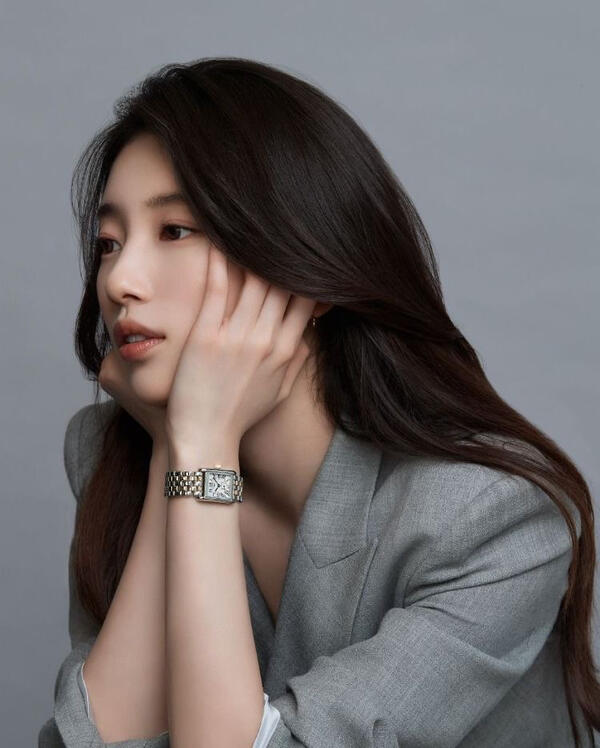and yes, we craft in dust what time cannot claim
Fragile matter,
eternal questions.
here lie the fragments of the lives she became.
read more… dossier. connections.
This account serves as an original character inspired by contemporary realism and emotional introspection. It is not affiliated with or impersonating the faceclaim—krystal (actress/soloist)—nor does it represent or comment on her real-life persona, affiliations, or actions. muse is plot-driven and character-focused, thriving on chemistry, slow-burn dynamics, and collaborative worldbuilding. Writing style leans toward literary and multi-paragraph, evoking a novella-like tone—though shorter or semi-lit formats are equally welcome depending on context.Please note: she is written as a complex, emotionally reserved character. She is not designed to be idealized or universally likable. In-character distance, hesitation, or guardedness are intentional traits that reflect her realism, not the writer’s disposition. Soft blocks may occur for timeline management; these are never personal
read the
guidelines.

Plotting via DMs or Discord is available upon request. Replies may be sporadic due to pacing and availability, so please refrain from rushing or double-pinging for replies. Please distinguish IC from OOC—her tone, decisions, and flaws belong to the character.the writer will not engage if you are a minor, engage in heavy nsfw posts, no dossier mentioned, discriminatory rhetoric, or godmodding/metagaming. Aggressive follow-backs, boundary-pushing, or unsolicited drama will result in a silent block. This account is a space for thoughtful, character-driven writing and creative collaboration—not competition or conflict.
and yes, we craft in dust what time cannot claim
Fragile matter,
eternal questions.
here lie the fragments of the lives she became.
read more… dossier. connections.
english name. navira (used professionally; “navira” chosen during her time in amsterdam by her stepmother for an ease of pronunciation.)
korean name. han ji-ah.
date of birth. october 25, 1997
place of birth. jeju-do, south korea.
gender. cis-female, she/her.relationship status. unattached; emotionally selective.
occupation. literary editor / essayist—specialises in narrative refinement, lyrical prose, and translated fiction.
known languages. korean (native), english (fluent), french (intermediate), dutch (basic reading).
education. B.A. in English Literature, Philosophy minor; secondary education in Amsterdamabout family.
father. architect, remarried, lives in amsterdam. biological mother. deceased, was a florist. grandmother. lives in jeju, owns a restaurant.
pets. a brown shorthair cat named milo, lives with her in seoul and zoro, a golden retriever who is her father and stepmother’s dog now.eyes. deep brown, reflective, often unreadable.
hair. dark brown, soft and loose; rarely styled, always effortless.
height. 168cm
mbti type. infj-t.
alignment. true neutral with altruistic tendencies.signature scent. soft musk, bergamot, and paper.
hobbies. writing, film photography, traveling, ballet, Geommu (traditional swords dance) tennis, seaside walks, candle-making, flowers, watching films, collecting books, soft jazz, cooking, tea rituals, observing people.positive. perceptive, empathetic, articulate, loyal, poised, quietly ambitious, introspective, emotionally intelligent.
neutral. private, restrained, romantic in ideals, sentimental, nocturnal, meticulous, contemplative, understated, elusive.
negative. avoidant, self-critical, guarded, indecisive in affection, prone to overthinking, emotionally distant, quietly self-sabotaging.likes. rain, espresso, paper, dusk, solitude, bookstores, linen, letters, silence, candles, cello, poetry, rivers, airports, sincerity, film, handwriting, touch, warmth, autumn, sea-glass.
dislikes. crowds, pretense, noise, haste, small talk, cruelty, fluorescent light, routine, arrogance, humidity, gossip, shallowness, deadlines, disruption, confrontation, forgetfulness, pity.
HER * ORIGINS, LIES BELOW.
she is the only child of a gentle, artistic mother who worked as a florist and a father who is an architect. Her mother passed away when she was six, leaving a lasting emotional void. Her father, struggling with grief, eventually moved abroad and remarried a Dutch woman, leaving her in the care of her grandmother on Jeju, who became her primary source of love, guidance, and emotional stability. Summers on the island were filled with quiet walks along the coast, the scent of tangerines, and evenings of storytelling and reflection experiences that nurtured her introspective and observant nature. From a young age, she showed a deep sensitivity to her surroundings and the people around her. She was naturally perceptive, noticing subtle expressions, shifts in tone, and the small details of everyday life. Social interactions could feel overwhelming, so she often retreated into reading, writing, or quiet observation. Her grandmother encouraged her curiosity and creativity, instilling in her both patience and a love for literature.At twelve, she began attending a boarding school in Amsterdam to maintain some connection with her father and stepmother. The city’s canals, foggy streets, and serene cafés became her world for exploration and reflection. There, she developed a profound appreciation for literature, art, and philosophy. Living abroad required independence, resilience, and adaptability, all of which shaped her adult demeanor. She maintained a polite, respectful relationship with her father and stepmother, whose influence introduced her to European literature, galleries, and the ritual of quiet, reflective mornings. Returning to Seoul at 19, she pursued English Literature and Philosophy at seoul national university, excelling academically while remaining socially selective. She was drawn to people who were thoughtful, emotionally grounded, and authentic, though forming close bonds was always measured and deliberate. Romantic experiences were rare and intense, often challenging her guarded nature. After graduating, she became a literary editor, specialising in character-driven fiction, essays, and translated works. She thrives in quiet spaces like libraries, cafés, or her softly lit office where she can focus on subtle emotional nuances. Her work allows her to interact with human emotion deeply while remaining privately reflective.
ARC 001 : MEMORY OF EMBER SILK.
Late 14th century (circa 1370–1400 CE)

She was once known not by name, but by motion—called only moon ryeo by those who dared whisper. Born beneath an eclipse, in the stone corridors of the Ember Temple, she moved as though the world itself were ink on parchment, and every gesture a word in a sacred, secret language. Her childhood was a labyrinth of disciplined steps, veils, and blades, each lesson a ritual, each strike a law carved into the air. The temple walls were lined with shadows that watched her grow, silent witnesses to a power both terrifying and exquisite.Her dances were never for praise—they were prophecies. Each motion bent fate, each blade sliced possibility into sharp fragments. Veils, soaked in myrrh and twilight, clung to her like living shadows. She moved across marble floors steeped in history and blood, her every step an articulation of beauty and terror intertwined. The Emperor, a man obsessed with permanence, summoned her. First as muse, then as shadow, and finally as possession. He demanded her obedience, her artistry, her loyalty. But when she refused to execute a child accused of treason, his admiration curdled into wrath. The temple burned. Her order was destroyed. Her name was erased from every scroll, every record, every memory except her own.She survived. She moved through fire and smoke, blades weeping with memory, each step a testament to defiance. At the palace gates, she danced one final time—not for loyalty, not for vengeance, but for freedom. Her body spun like a comet across the stone, each strike of her twin blades a language older than the throne. In a single, precise motion, the Emperor fell. As his life fled, a curse curled from his lips: “You will remember, even if the world forgets you.”Now, reborn as jia, she moves through the modern world carrying echoes of rhythm and steel. Her limbs remember choreography older than any stage, and dreams hum with music no one else can hear. Sometimes, in the quiet, beneath the skin, she feels the tug of silk veils, the weight of swords, the memory of fire that never truly dies. When she stares too long into flames or listens to the wind stirring against the city, she bows her head without knowing why. She always remembers the final dance, and the world still trembles in the echo of her steps.
ARC 002 : THE DROWNING GARDEN.
1910–1925, post-dynastic, pre-modern transitional era of Korea.

There is a forgotten garden in Jeju—overgrown, veiled in sea wind and the hush of tall silvergrass. It hides behind a nameless teahouse, one whose signage has long peeled into nothing. Locals walk past it without pause. Tourists never find it. But she always does, like breath returning to lungs.At its center hangs a fig tree, low and gnarled, its limbs dressed not in fruit but in glass wind chimes hand-blown, imperfect, swaying like suspended tears. When the wind moves right, three always ring in unison. They resonate in the hollow of her chest. She remembers hearing that same triad the first time she met him—the soft ting that slipped into the air as sunlight fractured across the street. At the time, she thought it was coincidence, some street musician or passing bell. But no. It was this. This tone. This note that knew his name before she did.In the garden, he once waited under the fig tree, arms wrapped around her in a quiet reverence, laughter caught between waves of wind. She loved him in a way that demanded no promises, only presence—an unspoken tether threading through years, cities, and half-forgotten letters. When the wind stirred the chimes, she felt the resonance of that love echoing through her chest, a pulse older than memory, softer than fear.Sometimes, the garden returns to her in dreams transfigured. The chimes glow blue. The fig tree blooms with ribbons and paper seals. Beneath the tree lies a child curled under moss, lips parted not in sorrow, but remembering the warmth of being held. The sound comes again: distant, slow, like bells tolling from beneath the sea. When she asks the teahouse keeper about the chimes, the quiet woman with storm-gray hair only smiles. “They ring for those who were taken by water,” she says. “The sea keeps what the world forgets. But some names cling like tidefoam.”She doesn’t speak of it often—that life, that love. The fire that tried to erase her. The breath she couldn’t find. But here, in this sliver of Jeju, she feels the shape of him curling back around her. The wind pauses when she passes. The chimes stir even when there's no breeze. In the margins of an old notebook, she writes: “I didn’t die in fire. I drowned in memory. And the sea still keeps him.”
and yes, we craft in dust what time cannot claim
Fragile matter,
eternal questions.
here lie the fragments of the lives she became.
read more… dossier. connections.
| CONNECTIONS. | ||
|---|---|---|
| @desecrant | azereal once existed in her life like light through lace—gentle, unspoken, almost unreal with remaining scent of his. the time took his name, his face, his voice. sometimes, when she passes a stranger wearing it, her heart stirs not with memory, but with the ache of something she once knew by soul alone. | |
| @spoiledsins | they say memory fades, but hyejung feels like a name stitched beneath her skin—familiar, tender, almost sacred. she doesn’t remember a sister, not truly, yet she dreams of shared laughter, of hands clasped in rain. every time she meets hyejung’s gaze, something in her settles as if she’s finally returned to a home she forgot she lost. | |
| @rageinpas | his voice found her long before he did—low, haunting, threaded through her dreams like waves calling her home. in waking life, she knows him as jimin, the man she both despises and drifts toward, again and again. he carries a truth she isn’t ready to face — the memory of who she was, and the reason she drowned. every time he speaks her name, the air shifts; it feels like remembering and breaking at once. | |
| @violetseoks | tba. | |
| @infeliciters | tba. | |
| @url | available plot. | they spent summers together in Jeju near her grandmother’s house, before life pulled them apart; decades later, they meet again in Seoul, unsure how to bridge the years. |
| @url | available plot. | they exchanged letters years ago through a literary column — she stopped replying after her mother’s death, but one letter never got delivered. |
| @url | available plot. | someone who rents the flat below hers; she only knows their life through muffled sounds, footsteps, and a single note left by mistake. |
| @url | available plot. | an old university friend who disappeared without warning and has now returned. now much older, changed, and carrying stories she’s afraid to ask about. |
| @url | available plot. | an author/publisher—someone tied to her work world, technically off-limits. they understand her ambition but also see through the walls she builds around it. |